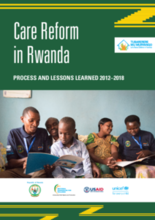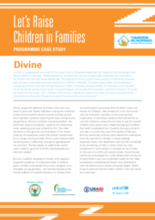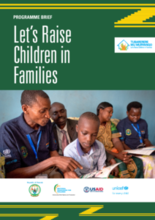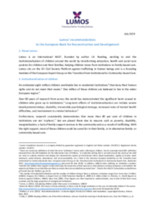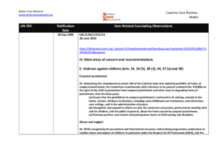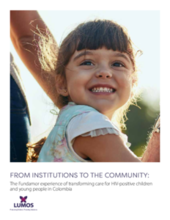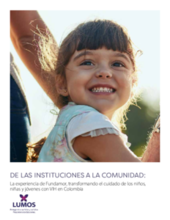Displaying 181 - 190 of 691
This paper documents the care reform process and presents key lessons learnt. It is based on a review of Rwandan policy and programme documents and on interviews and focus group discussions with 65 stakeholders.
This case study profiles the reintegration experiences of one child who has participated in the Tubarerere Mu Muryango (Let’s Raise Children in Families - TMM) programme in Rwanda.
This programme brief is part of a package of materials documenting successes and lessons learnt from implementation of the Tubarerere Mu Muryango (TMM) child care reform programme between 2012 and 2018.
This statement from Lumos outlines the organization's recommendations to the European Bank for Reconstruction and Development regarding the institutionalization of children.
This country care review includes the care related Concluding Observations adopted by the Committee on the Rights of the Child and the Committee on the Rights of Persons with Disabilities.
This report documents Fundamor's process of closing its institution in Colombia and moving children to family-based care, drawing out successes and challenges.
Este informe documenta el proceso de la organización Fundamor a cerrar su internado y, con el apoyo de Lumos, reubicar a los niños y niñas internos en nuevas modalidades de atención familiar.
This paper presents the current vulnerabilities faced by children and the scenario of child protection in India. While discussing the legal provisions prevailing in the country, it sheds light on the socio-cultural barriers that are creating resistance within the society in making the Alternative Care model (and the process of deinstitutionalisation of children) a success. Lastly it suggests viable options that may be helpful for the same.
The aim of this study is to compare the subjective well-being (SWB) of children hosted in institutions and in foster families with the well-being of children living with their families. Results indicate that children in residential care have a lower SWB in all variables compared to foster care and general populations groups.
Using a phenomenological approach, this qualitative study explores the contexts of institutional placement of children in Azerbaijan from their caregivers' perspectives.

